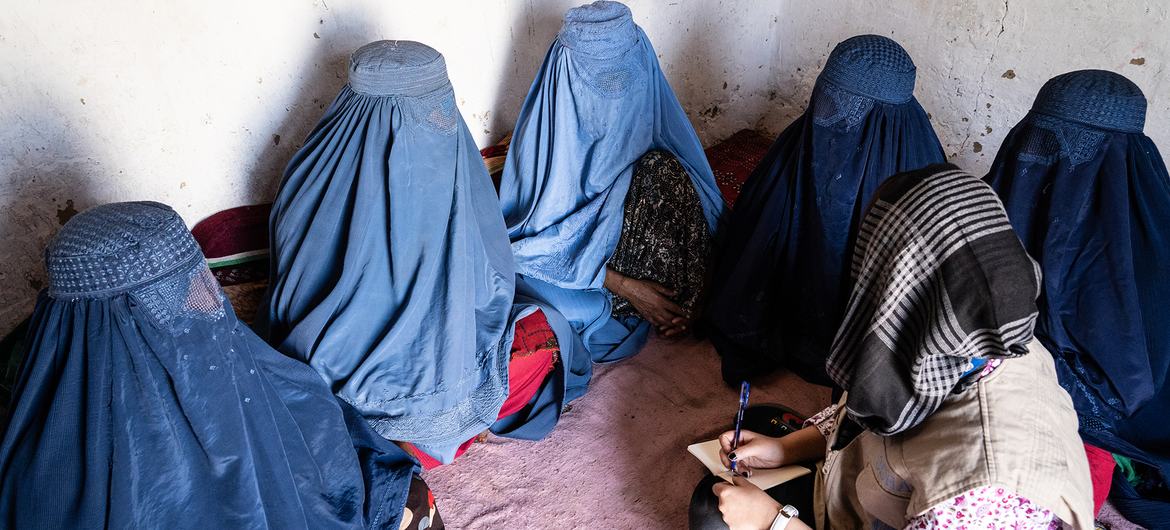
Afghanistan: UN forced to make ‘appalling choice’ following ban on women nationals
© UNOCHA/Charlotte Cans. An OCHA woman staff member meets displaced women in eastern Afghanistan
United Nations, 11 April 2023
The UN has launched an operational review in Afghanistan, and told national staff to remain at home, following the decision by the Taliban de facto authorities to ban Afghan women from working with the Organization.
“UN national personnel – women and men – have been instructed not to report to UN offices, with only limited and calibrated exceptions made for critical tasks,” according to a statement issued on Tuesday by its office in Afghanistan.
The ban is the latest in a series of discriminatory measures that restrict Afghan women and girls from participating in most areas of public and daily life, implemented in the wake of the Taliban’s return to power in August 2021.
‘An appalling choice’
The UN underlined its “unequivocal condemnation” of the move, saying it contravenes international law, including the UN Charter, the Organization’s founding document.
“Through this ban, the Taliban de facto authorities seek to force the United Nations into having to make an appalling choice between staying and delivering in support of the Afghan people and standing by the norms and principles we are duty-bound to uphold,” the statement said.
“It should be clear that any negative consequences of this crisis for the Afghan people will be the responsibility of the de facto authorities.”
Operational review underway
The statement announced that the UN Special Representative for Afghanistan, Roza Otunbayeva, who also heads its Mission in the country, UNAMA, has initiated an operational review period up to 5 May.
“During this period, the UN in Afghanistan will conduct the necessary consultations, make required operational adjustments, and accelerate contingency planning for all possible outcomes,” it said.
The UN said it will “maintain principled and constructive engagement with all possible levels of the Taliban de facto authorities, as mandated by the United Nations Security Council.”
The Organization will also work to continue lifesaving and time-critical humanitarian activities “during which we will assess the scope, parameters and consequences of the ban, and pause activities where impeded.”
The original article appeared here.